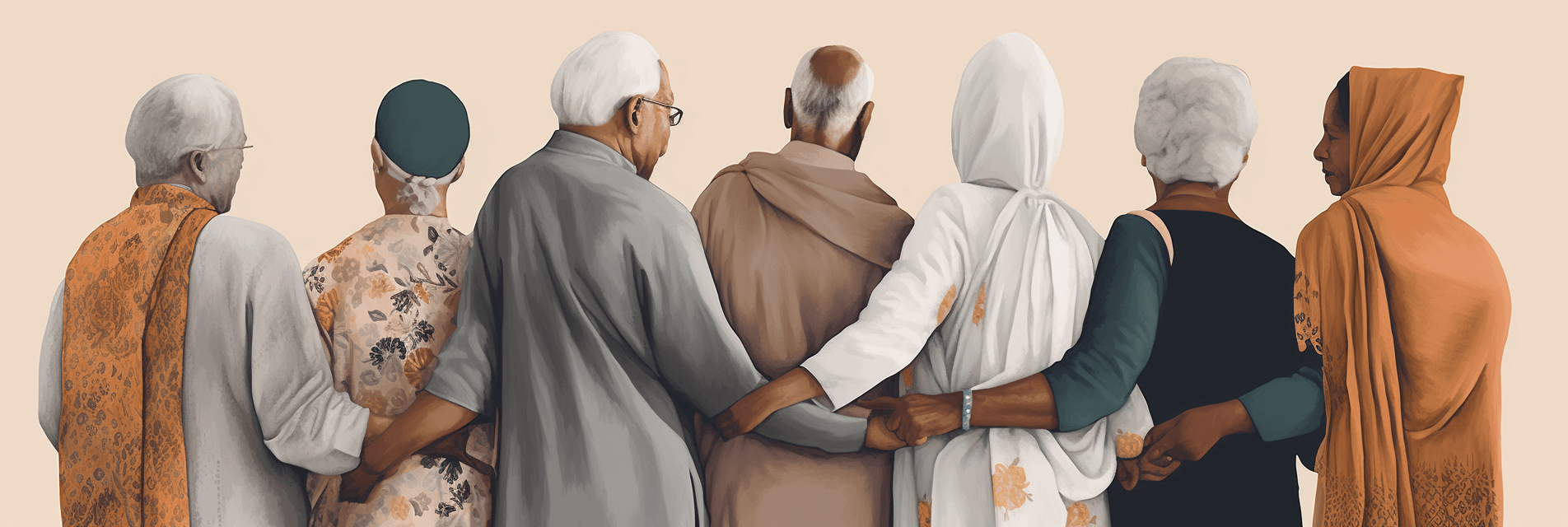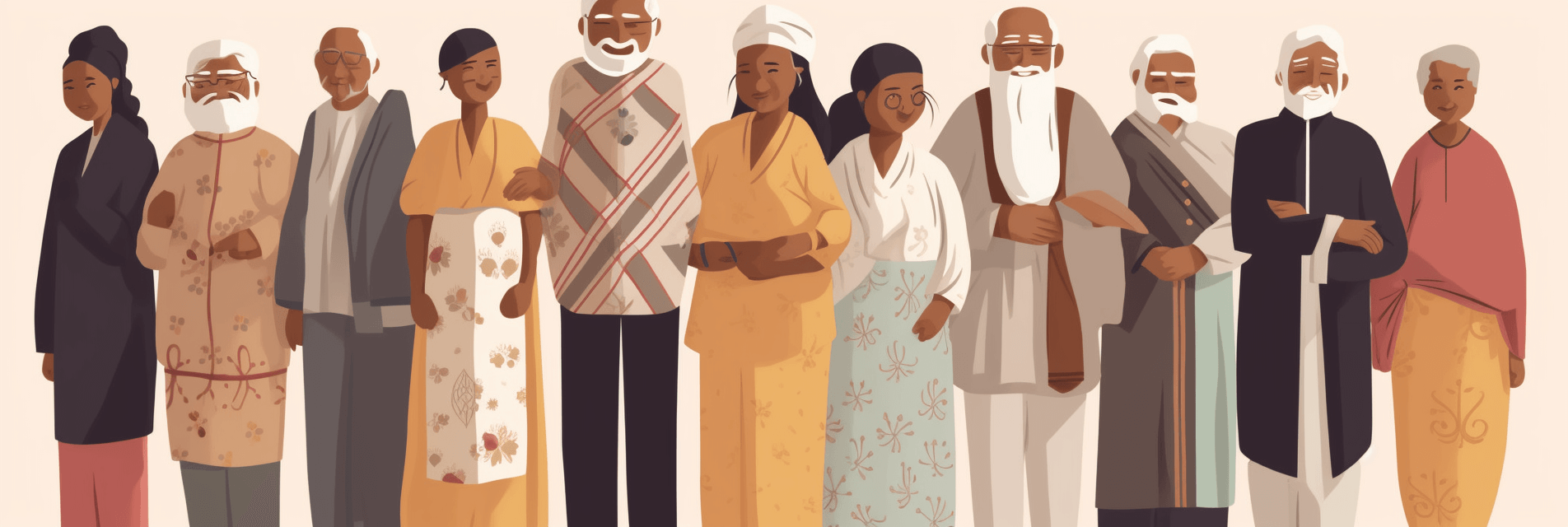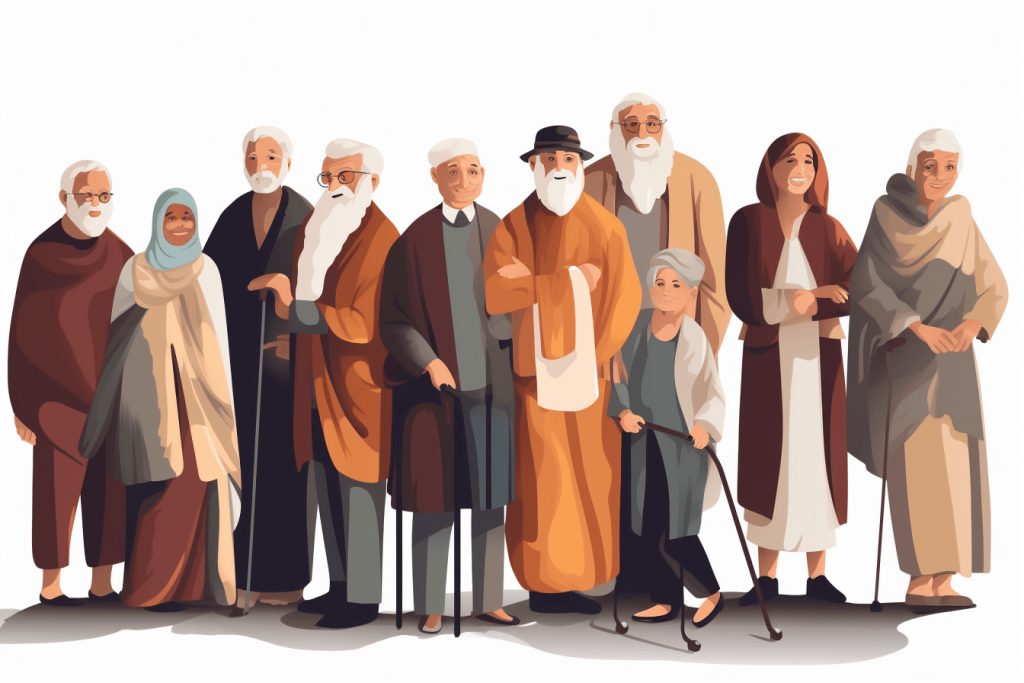elder care SEO strategies it’s more important than ever for elder care providers to embrace and respect the unique cultural backgrounds of their clients. As we strive to meet the needs of an aging population, we must also recognize that each individual comes with a rich tapestry of experiences, beliefs, and traditions that define who they are.

By incorporating cultural sensitivity in our elder care SEO strategies, we demonstrate our commitment to providing inclusive services and ensure that our online presence effectively reaches those who need us most.
Let’s embark on this journey together as we explore the importance of understanding different cultural backgrounds and their impact on elder care. We’ll delve into techniques for developing culturally sensitive content and implementing SEO strategies that cater to these diverse audiences.
In doing so, we will be taking a significant step towards creating a more inclusive online environment where everyone feels seen, heard, and valued – ultimately leading to better outcomes for the seniors we serve.
Understanding the Importance of Cultural Sensitivity in Elder Care SEO
It’s crucial to grasp how valuing diverse cultures is critical to enhancing your senior care website’s online presence.
By recognizing and addressing cultural barriers, we can create an environment that is more inclusive and welcoming for all. This makes it easier for potential clients to find the services they need and promotes a deeper understanding of diverse caregiving practices.
When we are culturally sensitive, we demonstrate our commitment to providing high-quality care that respects each individual’s unique needs, values, and beliefs.
Being mindful of cultural differences allows us to serve better those who may have different expectations or preferences regarding elder care. For example, some cultures may emphasize family involvement in caregiving decisions more, while others may prioritize personal autonomy.
By acknowledging these varying perspectives and incorporating them into our SEO strategy, we can reach a broader range of potential clients seeking quality elder care services. Doing so shows our dedication to fostering a compassionate and respectful community where everyone feels valued and understood.
Identifying Your Target Audience and Their Cultural Backgrounds
When pinpointing your target audience and their diverse roots, you can’t judge a book by its cover – in our opinion, understanding their cultural backgrounds is crucial for effective communication.
By identifying the cultural demographics within your service area, you’ll be better equipped to create content that resonates with each unique group, ensuring they feel seen, heard, and respected. This approach fosters trust and rapport and sets the groundwork for providing compassionate elder care services tailored to their specific needs.
Diverse marketing starts with thorough research on the various cultures present in your community. Please familiarize yourself with their customs, beliefs, and values about aging and elder care.
When crafting your SEO strategies, consider factors such as language preferences and family dynamics. Doing so demonstrates an authentic commitment to serving everyone needing elder care services while promoting a culturally sensitive environment where all individuals feel valued and understood.
Remember that we’re not just providing a service; we’re making connections with people who rely on us for compassion during one of life’s most challenging stages – let’s make those connections count by showing genuine empathy towards every culture we serve.
Developing Culturally Sensitive Content
Creating content that speaks to diverse audiences is essential for building trust and fostering genuine connections in the elder care industry. To develop culturally sensitive content, we must prioritize cultural representation and use language that acknowledges and respects the unique backgrounds of our audience. This means being mindful of word choices, avoiding stereotypes or generalizations, and embracing the nuances of different cultures.

By doing so, we show our commitment to inclusivity and our understanding of the varied experiences and perspectives within elder care.
Diverse imagery plays a crucial role in developing culturally sensitive content as well. When selecting images for our website, social media platforms, or marketing materials, we should ensure they reflect the rich diversity of the communities we serve. This includes showcasing people from various ethnicities, abilities, genders, orientations, and ages while respecting their dignity and individuality.
By incorporating these elements into our content strategy, we can create a more engaging experience for those seeking elder care services while promoting a sense of belonging among all members of our community.
Implementing Culturally Sensitive Keywords and SEO Strategies
We can’t underestimate the power of using thoughtful keywords and SEO strategies to reach a broader, more diverse audience in the elder care industry. Implementing culturally sensitive keywords and SEO strategies helps us connect with people from various backgrounds and demonstrates our commitment to cultural awareness and its impact on elder care services.

By incorporating diverse keyword selection that reflects different cultures, languages, and traditions, we can create content that resonates with our target audience while ensuring they feel valued, understood, and respected.
To achieve this goal, we should conduct thorough research on cultural preferences regarding elder care. This will help us identify specific terms or phrases commonly used within those communities when searching for related services or information online.
Additionally, we should consider partnering with experts in various cultural communities who can provide valuable insights into effective communication methods and appropriate terminology. By combining these efforts with ongoing monitoring of our website’s performance analytics – including traffic sources, popular search queries, etc. – we’ll be able to fine-tune our approach over time while continually improving the inclusivity and effectiveness of our online presence in the elder care space.
Monitoring and Adjusting Your Strategy for Continuous Improvement
So, you’ve implemented a diverse and inclusive online strategy – now what?
It’s time to monitor, adjust, and keep enhancing your approach for continuous improvement in reaching your valued audience. Performance analysis is crucial to understanding how well your culturally sensitive elder care SEO efforts work.
Regularly reviewing data and analytics can identify areas of success and where we need to make changes. Strategy adaptation is essential to ensure that our efforts remain effective as the needs of our audience evolve.
As trends emerge or cultural shifts occur within the communities we serve, it’s vital that we stay informed and proactively adjust our strategies accordingly. This might mean updating keywords, refining content topics, or even expanding into new channels for communication.
By embracing change and continuously improving our approach, we can better support those who rely on us for compassionate elder care services while fostering an inclusive environment where everyone feels seen, heard, and understood.
Frequently Asked Questions
How can we ensure that our elder care facility’s staff members are trained in cultural sensitivity and can provide culturally sensitive care to our residents?
At our elder care facility, we understand the importance of cultural training and resident inclusion. We’re committed to ensuring that our staff members are well-equipped with the necessary skills to provide culturally sensitive care.
Through comprehensive workshops, interactive sessions, and ongoing support, we help our team develop a deep understanding of our residents’ diverse backgrounds and needs. This enables us to create an inclusive environment where everyone feels respected, valued, and cared for – because we know that embracing each individual’s unique culture is vital in providing exceptional care for all.
What are some best practices for addressing language barriers when providing elder care services to individuals from diverse cultural backgrounds?
Our elder care facility understands the importance of addressing language barriers to ensure effective communication and provide the best possible care for individuals from diverse cultural backgrounds.
We prioritize hiring staff with language proficiency in various languages spoken by our residents and promoting diverse representation within our team. This approach allows us to build strong connections with our residents, fostering a sense of belonging and understanding beyond mere words.
By actively seeking ways to bridge these gaps, we’re providing culturally sensitive care and empowering each resident to lead a fulfilling life in an environment where their unique needs are acknowledged and met with compassion.
How can we effectively communicate our commitment to cultural sensitivity in our marketing materials, both online and offline, to attract a diverse clientele?
Ironically, in our quest to create a more inclusive world, we sometimes forget the simplest ways to show our commitment to diversity.
By implementing culturally responsive marketing strategies and diverse imagery, we can effectively communicate how much we value cultural sensitivity in elder care.
As an organization passionate about serving others, we understand the importance of making everyone feel seen and respected.
Our marketing materials are designed with accuracy, compassion, and respect for different cultures because it’s not just about attracting a varied clientele – it’s about truly understanding and celebrating their unique needs and experiences.
Are there any legal or ethical considerations we should know when incorporating cultural sensitivity into our elder care SEO strategy?
When considering incorporating cultural sensitivity into our elder care SEO strategy, it’s essential to be mindful of any legal and ethical implications.
By investing in cultural training for our team, we’re fostering a deeper understanding and respect for various traditions, beliefs, and values necessary to our diverse clientele.
Ethical marketing practices help us convey this commitment accurately and compassionately while ensuring we comply with regulations.
As dedicated caregivers, we recognize the importance of embracing diversity and empowering those who entrust us with their loved ones’ care – together, let’s create an inclusive environment where everyone feels welcomed, understood, and valued.
How can we establish partnerships with community organizations or cultural centers to understand better and serve the needs of elders from different cultural backgrounds?
Ironically, we thought we knew everything about elder care, but it turns out that building cultural partnerships and ensuring diverse representation is the real game changer.
By collaborating with community organizations and cultural centers, we can gain invaluable insights into the unique needs of elders from different cultural backgrounds. These connections allow us to create more inclusive and tailored care plans, fostering a sense of belonging and respect for our clients’ traditions and values.
Ultimately, this enriches our practice as caregivers while satisfying our innate desire to serve others in the most compassionate way possible.
So let’s embrace diversity and learn from each other – because there’s always more to discover when it comes to elder care.
Conclusion
Incorporating Cultural Sensitivity in Elder Care SEO
In our quest to provide the best elder care services, we’ve found that combining cultural sensitivity in our SEO strategy is essential.
By understanding and respecting the diverse backgrounds of our target audience, we can create content that resonates with them on a deeper level, ultimately leading to better engagement and client satisfaction.
As we refine our approach, we’ll seek new ways to be more culturally aware and inclusive in our online presence.
This makes for a more exciting experience for our audience and reflects the values of compassion and respect at the heart of quality elder care services.



